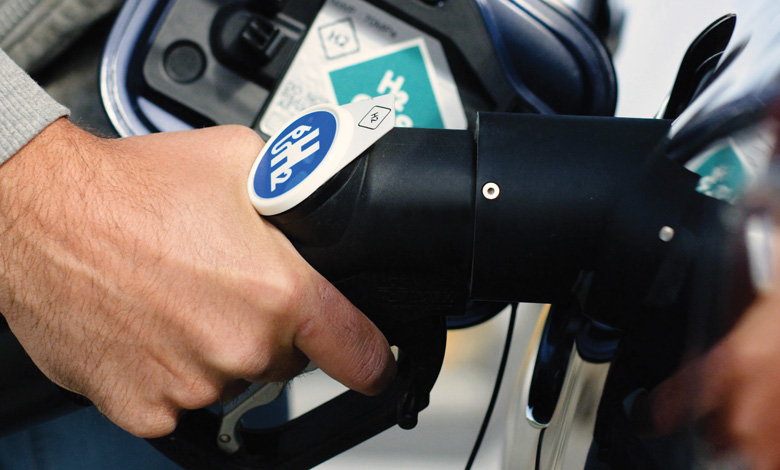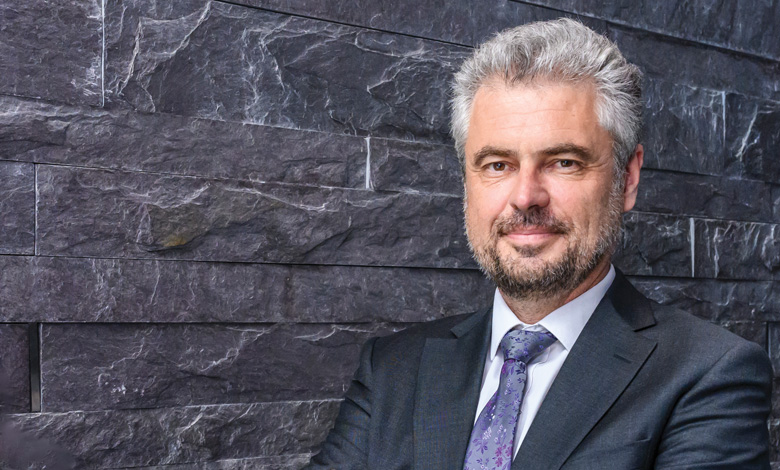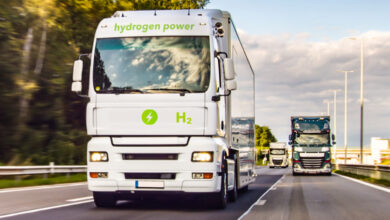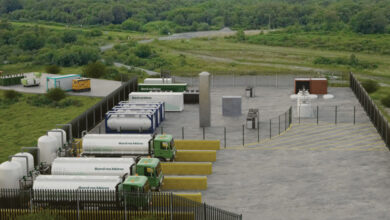Hydrogen gaining traction in Irish transport

Ireland’s climate targets for the transport sector, as defined by both the Climate Action Plan and EU requirements under the European Green Deal, hinge on the energy transition. It is a fundamental codependence in which hydrogen will play a role.
Currently, the challenge of decarbonising transport is determined by the fact that fossil fuels currently equate to 95 per cent of the fuel mix in transport – with the remaining 5 per cent comprising liquid biofuels and electricity.
Figures from the SEAI indicate that the transport sector emitted 14.5 Mt of carbon (MtCO2eq) in 2022, representing 40 per cent of the State’s total energy related CO2 emissions. Additionally, private cars accounted for approximately 40 per cent of transport energy demand and road freight a further 22 per cent.
Speaking to eolas Magazine, Assistant Secretary with responsibility for climate action at the Department of Transport, Caoimhín Ó Ciaruáin, contextualises the necessary response. “The scale of the transformation required is enormous,” he says, adding: “We will only achieve this transformation by aggressively pursuing policy actions across the avoid, shift, and improve framework for transport decarbonisation. The Climate Action Plan has established this roadmap for delivery.”
Alternative Fuels Infrastructure Regulation
In July 2023, the Council of the European Union announced the adoption of the Alternative Fuels Infrastructure Regulation (AFIR) under the EU Fit for 55 package. AFIR is intended to support the transition of road-based transport away from fossil fuels and towards electric vehicles and zero emission fuels.
The AFIR mandates the minimum recharging/refuelling infrastructure requirements for the EU’s transport network. Establishing targets up to 2030, the implementation of AFIR plans to provide such infrastructure along Europe’s main transport corridors, known as the trans-European transport (TEN-T) network.
From 2030 onwards, hydrogen refuelling stations must be provided without the need for subscription. Furthermore, operators must fully inform consumers of the availability, waiting times, and prices at their stations.

“Now, in 2024, we are delivering a feasibility study for the deployment of a green hydrogen refuelling station on the eastern TEN-T corridor between Dublin and Belfast.”
Caoimhín Ó Ciaruáin, Assistant Secretary, Department of Transport
Welcoming the announcement, Minister for Transport Eamon Ryan TD asserted: “The provisions in AFIR align closely with our national decarbonisation policies for Ireland’s transport sector and support the much-needed move away from fossil fuels across Europe. Adoption of this law at a European level sends a strong signal about the European commitment to transition away from fossil fuel.”
Working group
In response, in October 2023, the Transport Minister established an interdepartmental Alternative Fuels for Transport Working Group to facilitate policy development across both the Department of Transport and the Department of the Environment, Climate and Communications (DECC) and to coordinate actions relating to alternative fuel infrastructure and renewable energy across the transport subsectors: land, aviation, and maritime.
Within this remit, the working group will be tasked with leveraging the full potentials of the National Hydrogen Strategy, the Draft National Biomethane Strategy, and the development of offshore renewable energy strategies. The working group’s final report is expected to be published by the end of 2024.
“There is a huge amount of ambition in relation to hydrogen and the Alternative Fuels Infrastructure Regulation requires a significant investment in the space over the next decade,” Ó Ciaruáin explains.
“Specifically, Article 6 of AFIR establishes infrastructure targets for the delivery of refuelling stations – serving both light and heavy-duty vehicles – at all urban nodes on the TEN-T network and every 200km on the TEN-T corridor. This translates into the construction of hydrogen refuelling stations in Dublin, Cork, Galway, and Limerick that are capable of dispensing one tonne of hydrogen each day. The first deployment of this type of infrastructure is set for 2027.”
With transport regarded as one of the first movers for green hydrogen deployment, the Department of Transport is working closely the Department of the Environment, Climate and Communications on the National Hydrogen Strategy. “The challenge,” Ó Ciaruáin asserts, “is to deliver the necessary assets and derisk the associated investment.”
All-island collaboration
As outlined in the National Hydrogen Strategy, there is now an alignment between the carbon emission reduction targets and statutory requirements in Ireland, both north and south. Recognising the all-island nature of both energy and transport, the strategy highlights the associated “opportunities for strategic cooperation on green energy transition”.
Similarly, the revised National Development Plan 2021-2030 (NDP) incorporates a priority which commits to “exploring potential cross-border and all-island approaches on renewable energy, such as… the potential of hydrogen power”.
As such, the strategy details that, under the Shared Island initiative, both the Government and the northern Executive are supporting a feasibility study to determine the potential to establish hydrogen refuelling stations along the main road network between Dublin and Belfast, “which is the most intensively used transport route by heavy duty vehicles on the island”.
In January 2024, in a written response to Denis Naughten TD, the Transport Minister confirmed that his department was “progressing the delivery of a feasibility study” into the establishment of a green hydrogen refuelling corridor between Belfast and Dublin.
The Minister indicated that a review of the safety, regulatory, and infrastructural frameworks for the use of hydrogen as a transport fuel on the island of Ireland – again cofounded by the Shared Island Fund and the northern Executive – has already been completed. It is understood that the final report from the study is being considered and will be presented to the Minister “with a view to publishing it thereafter”.
Speaking to this, Ó Ciaruáin details: “Previously, in 2023, we worked with colleagues in the Department for the Economy to develop a hydrogen safety study using funding from the Shared Island Fund and the Department for the Economy.
“Now, in 2024, we are delivering a feasibility study for the deployment of a green hydrogen refuelling station on the eastern TEN-T corridor between Dublin and Belfast before seeking to apply the lessons from that experience at a national level.”





